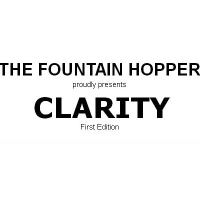Anonymous Stanford Website Helps Unlock Confidential Admissions Files

A group of anonymous Stanford students gave college kids everywhere an online tutorial last week on how to find out who helped them get into school—and who trashed them behind the scenes.
The Fountain Hopper newsletter posted a Five-Step Plan™ explaining how students can request copies of their admission records from the university using the Family Educational Rights and Privacy Act (FERPA). After a 45-day wait, they can peruse essays written about them by admissions officers, numerical valuations of their personalities, letters of recommendation, descriptions of interviews and other information generally regarded as confidential.
A Stanford spokesperson told the New York Times that only individuals who are admitted to a school can request their files. But The Fountain Hopper FAQ suggests rejectees might try anyway: “We're not 100% sure how long Admissions holds onto the files of non-matriculated students, but it's worth a shot.”
Rejected applicants arguably have a greater incentive to pull back the curtain, but The Fountain Hopper explained to BuzzFeedNews why the chosen should see their files. “We think that admission to a University such as Stanford is a process that is biased towards those that are in the know,” they wrote in an email. “Everyone has a right to know what goes on in the black box.”
Except everyone doesn’t get to see everything, according to the Times. A lot of schools use The Common App, an undergraduate college admission application used to streamline the process and encourage schools to offer a holistic admissions process that includes subjective and objective criteria.
The app also encourages prospective students to leave checked a little box that says they won’t ask to see letters of recommendation from high school counselors and teachers. But if the box is unchecked, it’s all fair game.
FERPA was not designed as a backdoor into confidential files. The 1974 Act was meant to give parents and students access to records for the purpose of amending them and controlling their disclosure.
Now, according to The Fountain Hopper, more than 700 have clicked on the interactive guide and expanded the FERPA’s reach. Among the handy resources provided by the site is a pleasant, nicely worded access request example.
But for those students who wonder “why did you bill me $300 for a wall scratch / why can't I use meal plan dollars where they count / why must I wait two weeks for a CAPS appointment when I need one now / why are intro chem classes designed to make you cry / *insert grievance here*”—for them—the site provides “The Less Nice Option.”
It’s written by a Stanford law student in imposing legalese with an optional paragraph that threatens revocation of all the university’s federal education funds if compliance is not forthcoming.
–Ken Broder
To Learn More:
Students Gain Access to Files on Admission to Stanford (by Richard Pérez-Peña, New York Times)
Here’s How To See What College Admissions Officers Wrote About You (by Molly Hensley-Clancy, BuzzFeed)
Clarity (The Fountain Hopper)
- Top Stories
- Controversies
- Where is the Money Going?
- California and the Nation
- Appointments and Resignations
- Unusual News
- Latest News
- California Forbids U.S. Immigration Agents from Pretending to be Police
- California Lawmakers Urged to Strip “Self-Dealing” Tax Board of Its Duties
- Big Oil’s Grip on California
- Santa Cruz Police See Homeland Security Betrayal in Use of Gang Roundup as Cover for Immigration Raid
- Oil Companies Face Deadline to Stop Polluting California Groundwater





